'For the patients we couldn’t save'
More Americans are willing to get a COVID-19 vaccine. This year has been the deadliest in U.S. history. And somewhere in Florida, an iguana is falling from the sky.
It's Ashley. Let's do the news thing.
But first, ma'am, this is an airport: It's not every day you see a plane's emergency slide in use. It's even less often you see two passengers use it to slide out of a plane with their dog.
The Short List is a snappy USA TODAY news roundup. Subscribe here!
You ready for this vaccine, America?
Are you planning to receive a COVID-19 vaccine when you can? Americans are starting to warm up to the idea now that two vaccines have been authorized by the FDA and health care workers have begun receiving the shots (shout out to Anthony Fauci, who gave two thumbs-up after being vaccinated Tuesday). In a new USA TODAY poll, 46% of respondents say they will take the vaccine as soon as they can. That's almost double the 26% in a USA TODAY poll in late October. That growing acceptance is a reassuring sign for public health experts who call distribution of the vaccine crucial to controlling the pandemic that has killed more than 321,000 people in the USA.
Still on the fence? I totally understand. To ease my own apprehension, I asked a few friends in health care to tell me why they chose to receive the COVID-19 vaccine.
Here's what they had to say:
"I got vaccinated for my family, for the patients we cared for that we couldn’t save, and for the 1.6 million lives lost throughout the world. When I think back to March, I can’t believe we are still here. My saving grace has been the wonderful team I work with. I couldn’t have gotten through this without them or my incredibly supportive family."
– Kelsey Palatiello, Medical Intensive Care Unit at New York-Presbyterian/Weill-Cornell
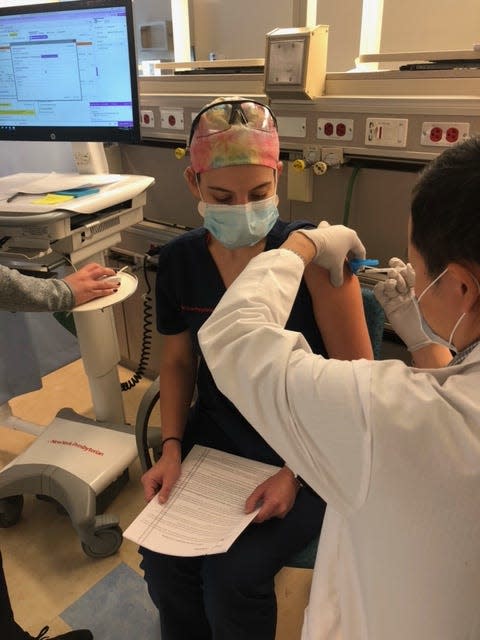
"I feel honored and privileged to partake in this moment in scientific history. As a childhood cancer survivor and now a pediatrician, I know how critical vaccines are for the health and safety of our community. We know that vaccines are safe, that they work, and that they save lives. When you get a vaccine, you are not just protecting yourself, but also those around you."
– Shira Einstein, pediatric resident, Doernbecher Children’s Hospital
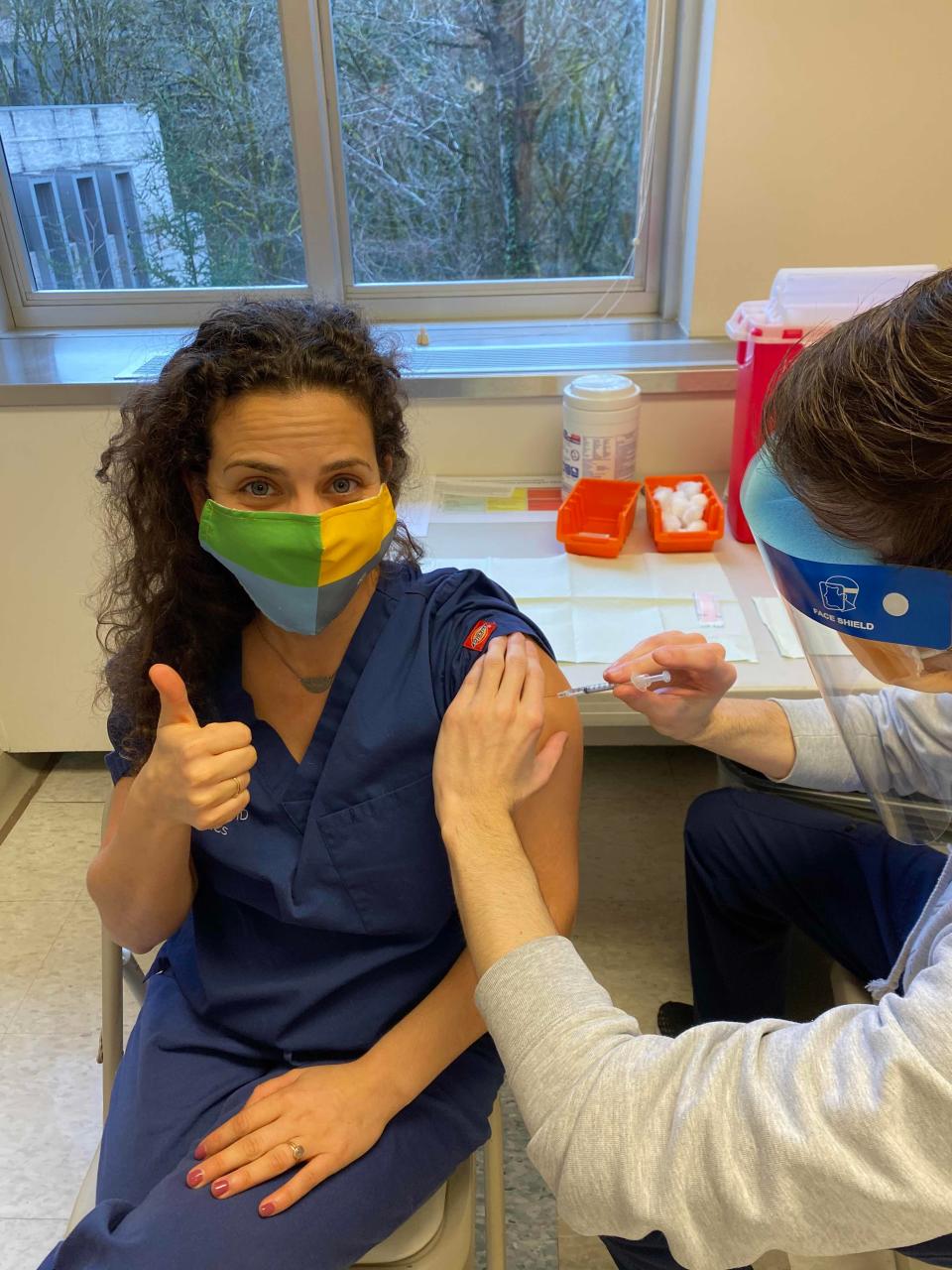
"I am so grateful and honored to have gotten the Pfizer COVID-19 vaccine this week. This shot has been a small but powerful dose of hope that me and my fellow health care workers have desperately needed. Thank you, science, and thank you to all the amazing minds that spent countless hours on making this vaccine possible."
– Jennifer Deutsch, a nurse in Washington
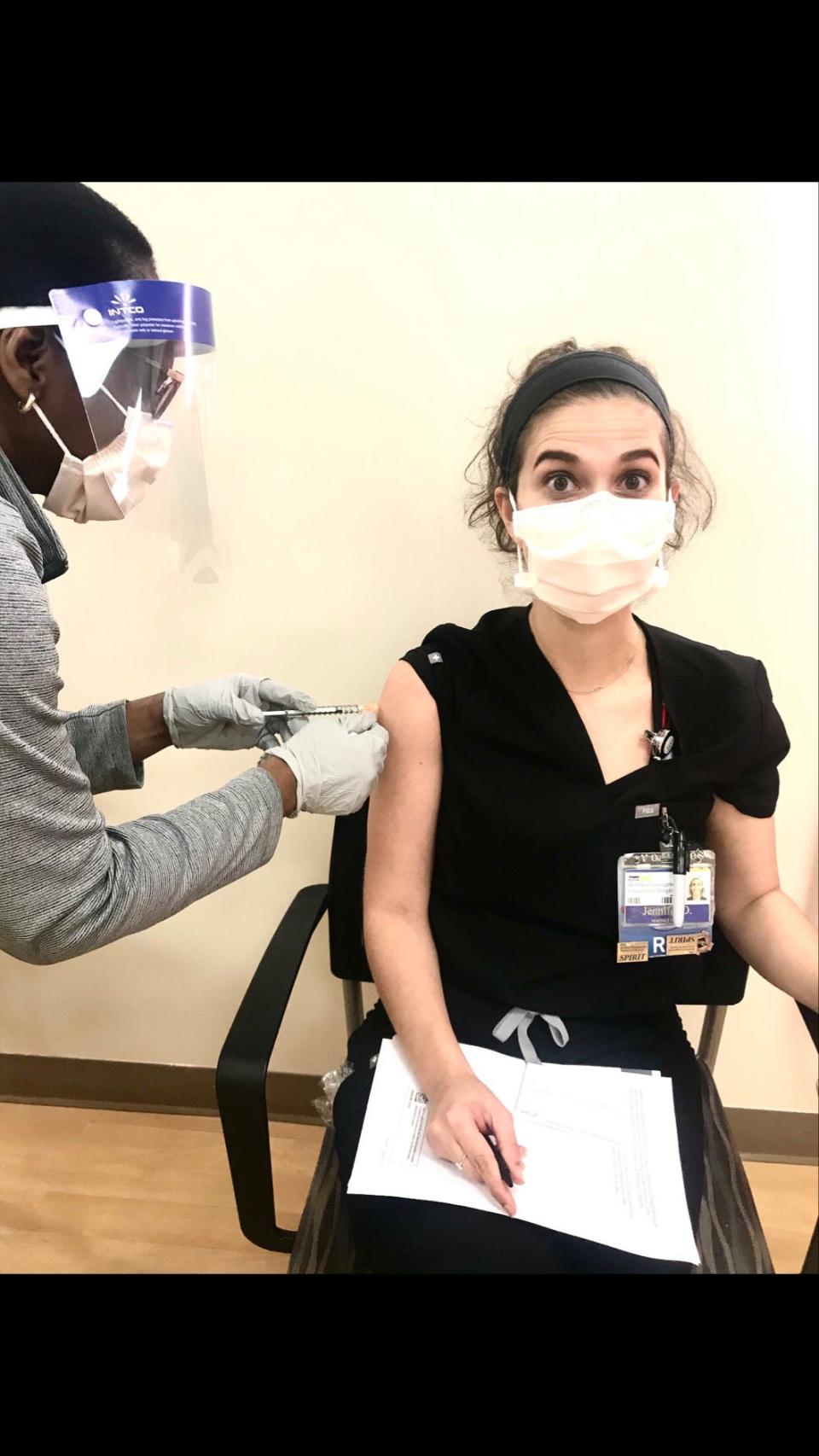
Want to share your vaccine story? As health care workers get the COVID-19 vaccine, we want to hear your reasons why – and see your selfies. Email me at TheShortList@usatoday.com to share yours.
Why is the vaccine important? It's been a deadly year
This year has been the deadliest year in U.S. history. Deaths are likely to top 3 million for the first time – mainly because of the pandemic. Preliminary numbers show the country will have more than 3.2 million deaths, at least 400,000 more than in 2019. U.S. deaths increase most years, so some annual rise in fatalities is expected. But the 2020 numbers amount to a jump of about 15%, and could go higher once all the deaths from this month are counted. That would mark the largest single-year percentage leap since 1918, when tens of thousands of U.S. soldiers died in World War I and hundreds of thousands of Americans died in a flu pandemic.
What everyone’s talking about
John Mulaney, a stand-up comedian and writer who has been open about struggles with alcoholism and drug addiction, reportedly checked into rehab.
Americans are hoarding toilet paper again because of COVID-19 fears, and it could cost them.
How a pasta dinner and Zoom chats rescued the COVID-19 relief bill and led to a $900 billion deal.
A ski resort, a dream and greed: How a $350M fraud happened in Vermont’s poorest region.
How will the COVID-19 vaccines be transported safely from manufacturing locations to administration sites? Low temperatures and careful logistics.
Alex Padilla to fill Kamala Harris' Senate seat, becoming the state's first Latino US senator
Vice President-elect Kamala Harris is headed to the White House, leaving big shoes to fill. Meet California Secretary of State Alex Padillla. Gov. Gavin Newsom appointed Padilla on Tuesday as the state's next U.S. senator to fill the seat being vacated by Harris. The child of Mexican immigrants, he will give a new level of representation to Latinos, the demographic group that makes up nearly 40% of California's population. Padilla, 47, has been California’s top elections official since 2015 and was widely expected to be Newsom's pick.
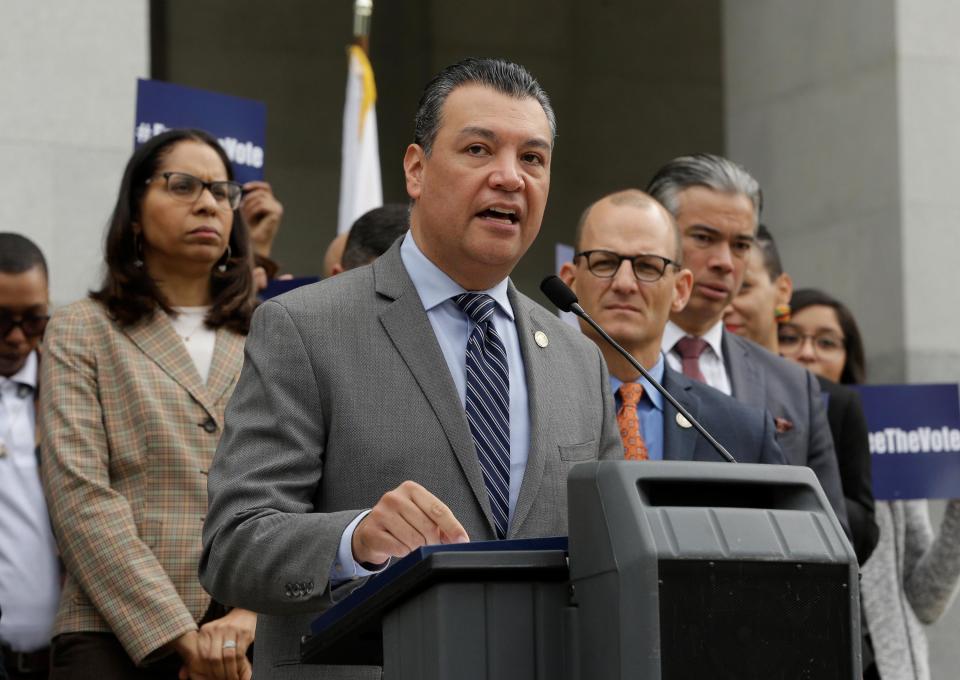
Has Walmart fueled opioid abuse? The Justice Department says yes
The Justice Department accused Walmart on Tuesday of contributing to the deadly opioid epidemic by filling thousands of invalid prescriptions and failing to report suspicious orders of opioids and other drugs placed by its pharmacies. In a civil complaint, federal authorities allege "hundreds of thousands of violations" of the Controlled Substances Act, and they seek billions of dollars in penalties. Anticipating the lawsuit, Walmart filed a legal action of its own in October, claiming that justice officials were "more focused on chasing headlines than fixing the (opioid) crisis." Tuesday, Walmart sought to blame the government for not monitoring suspicious doctors closely enough.
The best of 2020: Money
USA TODAY editors came together to select the best stories of 2020. (Trust us, it wasn't easy.) Every day until we ring in 2021, I'll be rounding up some of the year's most powerful stories:
Why are there so few Black executives in America?
There are two COVID-19 Americas, one needs more federal aid, the other is spending and saving.
Worried about another recession? Here's what the stock market predicts for 2021.
Will the remote work craze kill the office building?
Dentists could raise fees, exit family practices as the pandemic keeps patients away.
It's a bird, it's a plane. Nope, just a falling iguana
Just another weather forecast in Florida: falling iguanas. The National Weather Service in Miami issued an unofficial warning Monday for possible "falling iguanas" this week. "Brrr!" the Weather Service tweeted. "Much colder temps expected for Christmas. Low temperatures in the 30s/40s and falling iguanas are possible." Once temperatures reach a certain level, iguanas stiffen up and fall out of trees, meteorologists say. But they aren’t dead! According to the Weather Service in Florida, "Iguanas are cold blooded. They slow down or become immobile when temps drop into the 40s. They may fall from trees, but they are not dead."
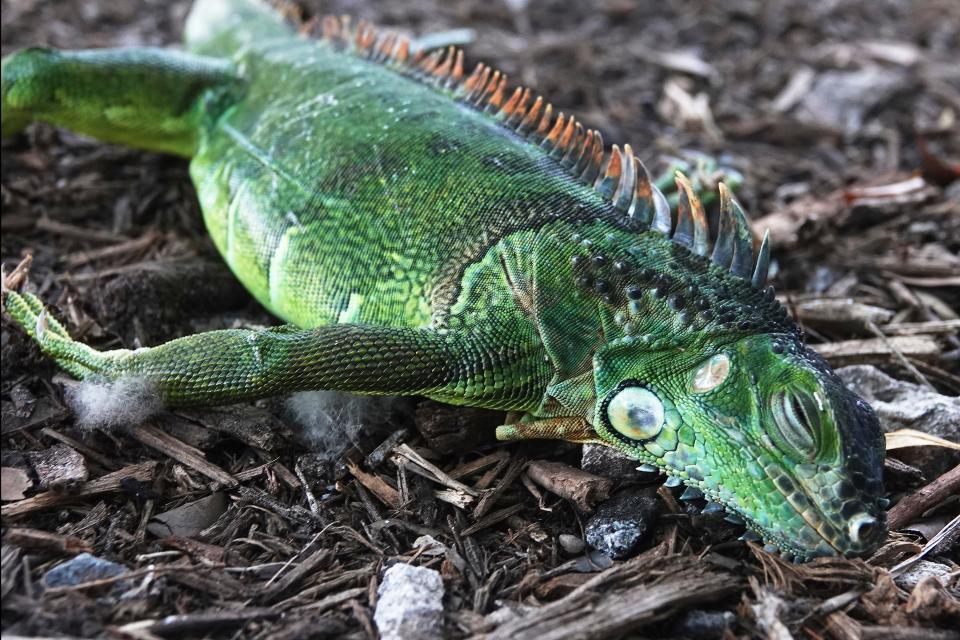
A break from the news
🎄 Christmas Eve same-day delivery: Target, Walmart, Best Buy, Amazon, other stores delivering Thursday.
🍿 Ranked! The 10 best movies of 2020, from "One Night in Miami" to "The Invisible Man."
🎁 I said it before and I'll say it again: There's still time! 13 amazing gifts you can still order to arrive by Christmas.
This is a compilation of stories from across the USA TODAY Network. Want this news roundup in your inbox every night? Sign up for The Short List newsletter here.
This article originally appeared on USA TODAY: COVID-19 vaccine, Alex Padilla, Fauci, Walmart, iguana: Tuesday's news

